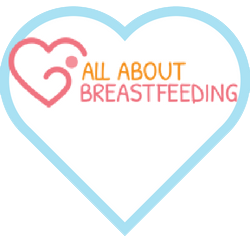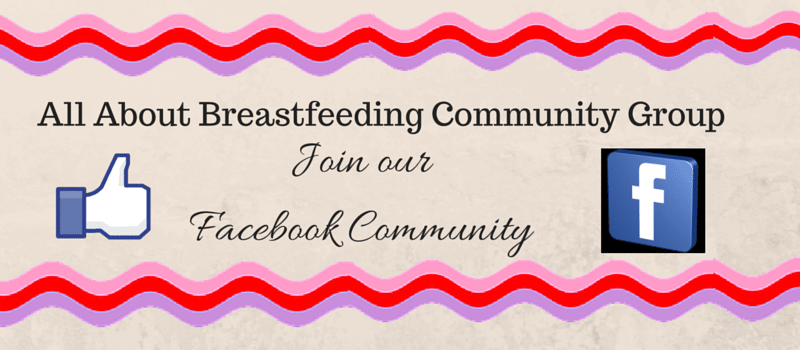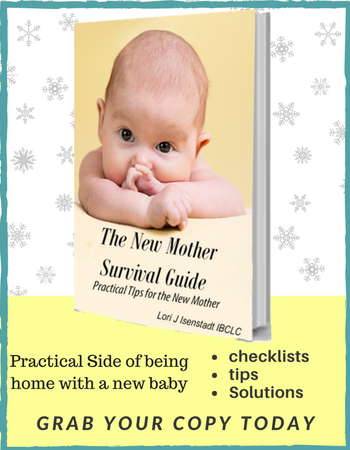Episode 318
I was recently interviewed on a local Arizona TV Station Channel 12 as a guest on their Facebook Live Segment
The main topic was: Is it safe for breastfeeding mothers to drink alcohol. T WE chatted for a few minutes about this topic and then then we switched to responding to questions people were posting on Facebook. It was not until I came home later that evening and the next morning that I had a chance to take a good look at the posts and had an opportunity to respond.
There were so many responses, I just could not keep up with it. By and large, a majority were liked and agree with what I had to say, there were just a few perhaps 2 or 3 who did not agree with what I had to say. Since there were so many reviews and posts and shares, I realized that this is a topic breastfeeding moms want to know more about, so I thought this was a great place to discuss what I have learned and what the research shows on the topic of alcohol and breastfeeding safety.
Let’s start with what the CDC and the AAP states on this subject.
The CDC has last been updated their page on March 21st, 2018.
Not drinking alcohol is the safest option for breastfeeding mothers. However, moderate alcohol consumption (up to 1 drink/day) is not known to be harmful to the infant.
According to the CDC, moderate consumption for women of legal drinking age is defined as up to 1 standard drink per day.
There are many variables to answering this questions, so you will see inconsistency in the responses because 1 drink per day can be different from one person to the other especially because portion size can differ from one person to the next. Someone can have a 3 oz glass of wine and call it a drink and the next person can have an 8 oz glass of wine and call it a drink. So, I find it helpful to define this also.
What is considered a drink, The Dietary Guidelines for Americans defines a standard drink as 12 ounces of 5% beer, 8 oz of 7% malt liquor, 5 ounces of 12% wine or 1.5 ounces of 80 proof liquor.
As is stated on the CDC site, 1 drink per day is not known to be harmful to the infant. However, if a mom were to drink above moderate levels, this could be damaging to the infant.
Many people ask: Can alcohol be found in breastmilk and the answer is yes. Now how much and how long is quite dependent on the variables, which are –
how much alcohol has been consumed,
how fast was the alcohol consumed,
did you eat food with your drink, how much food
how much does the m other weigh
and how fast is the alcohol broken down in the mother’s body.
A newborn’s liver will handle the alcohol content differently than a 3 month old and a 6 month old as the older a baby gets the better job of metabolizing the alcohol their liver
So, when I am asked this question on a general level, I can answer that 1 drink per day is okay.
More than that, and for how long it takes for the alcohol gets out of your system, I am unable to answer.
What I would like to clear up is the myth of pumping and dumping, which is where moms will drink and then before they feed their baby, they will have a pumping session and then dump the milk. They are under the impression that this will clear the alcohol out of their system. altogether or it will help clear out the alcohol faster.
Not true. As long as the alcohol is in your blood system, it is in your milk and at about the same level.
While I cannot be sure of the exact timing, the CDC suggests waiting 2 hours per drink before breastfeeding or pumping milk for your baby.
1 drink – you have a 2 hour wait
2 drinks – you have a 4 hour wait
3 drinks – you have a 6 hour wait
so on and so forth.
Again it is helpful to know though that as long as their is alcohol in your bloodstream, it is also in your milk.
So, the 3 drinks that you had, may clear your system in 6 hours, but it may take longer to clear you best friends system because, perhaps they didn’t eat when they drank or perhaps they weigh more than you. These are the unknown variables.
Two other reliable sources. The first one is from Dr. Jack Newman who is a Canadian Pediatrician who has written a few books on breastfeeding and lectured around the world on breastfeeding. In his handout on More Breastfeeding Myths, Dr. Jack Newman says:
“Reasonable alcohol intake should not be discouraged at all. As is the case with most drugs, very little alcohol comes out in the milk. The mother can take some alcohol and continue breastfeeding as she normally does. Prohibiting alcohol is another way we make life unnecessarily restrictive for nursing mothers.”
Thomas W. Hale, R.Ph. Ph.D, says this in his book Medications and Mothers’ Milk (17th ed.):
The absolute amount (dose) of alcohol transferred into milk is generally low and is a function of the maternal level. . The absolute amount of alcohol transferred into milk is generally low.
All sources do agree that chronic or heavy consumers of alcohol should not breastfeed. Excessive levels may lead to drowsiness, weakness and decreased linear growth in the infant.
The reason I wanted to do a show on this is because it is such a topic of interest. I find that in talking to parents, they assume that what they were told during pregnancy, is the same for breastfeeding.
The AAP is very clear stating that there is no safe amount of alcohol a women can drink at any time during her pregnancy. Research evidence is that even drinking small amounts of alcohol while pregnant can lead to miscarriage, stillbirth, prematurity or sudden infant death syndrome.
In the same article, the AAP states that since alcohol passes through breastmilk to a baby, it’s best for women to avoid habitual use of alcohol while breastfeeding. If a women chooses to have an alcoholic drink, it’s best to do so just after she has nurse or expressed milk, rather than before, and allow at least 2 hours per drink before the next feeding or p umping session.
We live in the real world. The reality for some moms is that after spending 9 months of pregnancy abstaining from ingesting foods, medicines, alcohol, drugs that are not good for their baby, they can put back some of the foods they were staying away from, some medicinces that were not safe during pregnancy are now considered safe when breastfeeding. Perhaps they would like a beer or a glass of wine or another alcoholic beverage once in a while. Both the CDC and the AAP has given them guidelines to follow.
I have some things for you to consider while you are deciding whether to have alcohol as a breastfeeding mother:
IMPORTANT CONSIDERATIONS
- Your baby’s age
- A newborn has an immature liver, and will be more affected by alcohol
- Up until around three months of age, infants metabolize alcohol at about half the rate of adults
- An older baby can metabolize alcohol more quickly than a young infant
- Your weight
- A person’s size has an impact on how quickly they metabolize alcohol
- A heavier person can metabolize alcohol more quickly than a lighter person
- Amount of alcohol
- The effect of alcohol on the baby is directly related to the amount of alcohol that is consumed
- The more alcohol consumed, the longer it takes to clear the body
- Will you be eating
- An alcoholic drink consumed with food decreases absorption
If you decide to have a drink, here are some ways you can reduce the effects of alcohol on your baby:eliminate or minimizing alcohol exposure to the infant for at least the first 3 months as their liver does a better job of metabolizing the alcohol at 6 months, than at 3 months.
choose low alcohol drinks
Have some food with your drink
Follow the 1 drink wait 2 hours rule
.You may choose to express or pump milk after consuming alcohol to ease her physical discomfort or adhere to her milk expression schedule.
Remember the amount of alcohol that gets into your breastmilk is quite low,
Be reasonably, act responsibly with the information that you have.
Don’t let your desire to have a drink be the reason you decide not to breastfeed
or stop breastfeeding. Follow the guidelines given by the AAP and the CDC
and enjoy being a breastfeeding mother.
Check out my website, which is aabreastfeeding.com where you will find all sorts of information about breastfeeding, see the list of all the podcast interviews I have done as well as look at the services I provide. Scheduling a lactation consult with me is easy using my online scheduling features. Also, I would love to have you join my FB group where you can connect with other breastfeeding moms all over the world. Picture’s and stories are shared as well as tips on pumping and returning to work. It is also a great place to post if you need to vent about things like dealing with unsupportive friends and family or even just to say things like: I love my baby and I am a happy breastfeeding mom but I am so tired. Is anyone else out there feeling this way too? Just go to AABC and click that join button.
Most drugs appear in the milk, but usually only in tiny, even minuscule amounts. Although a very few drugs may still cause problems for infants even in minuscule doses, this is not true for the vast majority. Breastfeeding parents who are told they must stop breastfeeding because of a certain drug should ask the physician to make sure of this by checking with reliable sources. Note that the CPS (in Canada) and the PDR (in the USA) are not reliable sources of information about drugs and breastfeeding. These “resources” are merely a compilation of the information provided by the drug manufacturers who are more interested in their medical legal liability than the interests of the mother and baby. Their policy is essentially “We can’t be held responsible if we advise the breastfeeding parent to interrupt breastfeeding”. But if there is a real concern in the rare case, the breastfeeding parent should ask the physician to prescribe an alternate medication that is acceptable during breastfeeding. One of the rare cases is the use of letrozole (Femara) to induce ovulation. Although not contraindicated during breastfeeding and like all drugs appearing only in tiny amounts in the milk, it is better not to use in the breastfeeding mother. However, there are alternatives to induce ovulation that are safe.
Center for Disease Control
https://www.cdc.gov/breastfeeding/breastfeeding-special-circumstances/vaccinations-medications-drugs/alcohol.html
Pediatrics
September 2013, VOLUME 132 / ISSUE 3
From the American Academy of Pediatrics
http://pediatrics.aappublications.org/content/132/3/e796
 Lori Jill Isenstadt, IBCLC is a huge breastfeeding supporter. She has spent much of her adult life working in the maternal health field. Once she became turned on to birth and became a childbirth educator, there was no stopping her love of working with families during their childbearing years. Lori became a Birth doula and a Postpartum doula and soon became a lactation consultant. She has been helping moms and babies with breastfeeding for over 25 years. Lori founded her private practice, All About Breastfeeding where she meets with moms one on one to help solve their breastfeeding challenges. She is an international speaker, book author and the host of the popular itunes podcast, All About Breastfeeding, the place where the girls hang out. You can reach Lori by email at: [email protected] or contact her via her website: allaboutbreastfeeding.biz/contact
Lori Jill Isenstadt, IBCLC is a huge breastfeeding supporter. She has spent much of her adult life working in the maternal health field. Once she became turned on to birth and became a childbirth educator, there was no stopping her love of working with families during their childbearing years. Lori became a Birth doula and a Postpartum doula and soon became a lactation consultant. She has been helping moms and babies with breastfeeding for over 25 years. Lori founded her private practice, All About Breastfeeding where she meets with moms one on one to help solve their breastfeeding challenges. She is an international speaker, book author and the host of the popular itunes podcast, All About Breastfeeding, the place where the girls hang out. You can reach Lori by email at: [email protected] or contact her via her website: allaboutbreastfeeding.biz/contact 
Listen Here
Submit a comment
your email address will not be published








